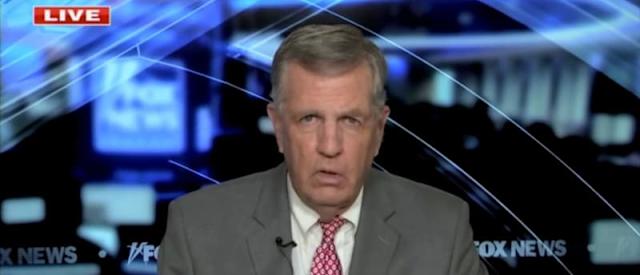Fox News senior political analyst Brit Hume voiced skepticism Wednesday over a potential Trump-brokered nuclear deal with Iran, warning that any diplomatic breakthrough would rely heavily on verifiable compliance.
Hume appeared on Special Report with Bret Baier following an interview with Qatar’s Prime Minister Mohammed bin Abdulrahman bin Jassim Al Thani, who said regional leaders support a nuclear-free Middle East and favor diplomacy over conflict. Hume, however, questioned the feasibility of enforcing such a deal.
“Well, that would be great if it were true,” Hume said. “But the question is could it be verified? Would we know that they were not enriching uranium? And why in the world do they need uranium anyway for a nuclear power plant when they’re drowning in oil?”
Hume cautioned that without strict verification mechanisms, any agreement with Iran would be inherently fragile. “I think we’ve got a lot more to find out here on this deal and whether the president would be willing to use it,” he told Baier.
President Donald Trump raised the nuclear issue during a state dinner with the Qatari emir, urging Qatar to pressure Iran to scale back its nuclear ambitions. The request came during Trump’s Middle East tour, where he emphasized regional cooperation and reiterated his administration’s withdrawal from the 2015 Iran nuclear deal.
Trump told Gulf leaders he was open to a new agreement—but only if Iran halts support for proxy militias and terrorist groups across the region.
Ali Shamkhani, a top adviser to Iran’s supreme leader, confirmed that Iran is willing to strike a deal with the Trump administration under certain conditions. Shamkhani said Iran would dismantle its weapons-grade uranium program, restrict enrichment to civilian levels, and allow international inspections—but only if all U.S. sanctions are lifted immediately.
Shamkhani’s comments signal one of the clearest acknowledgments yet of Iran’s willingness to reengage diplomatically under a Trump-led White House. Still, critics like Hume remain cautious about the regime’s trustworthiness and long-term intentions.
